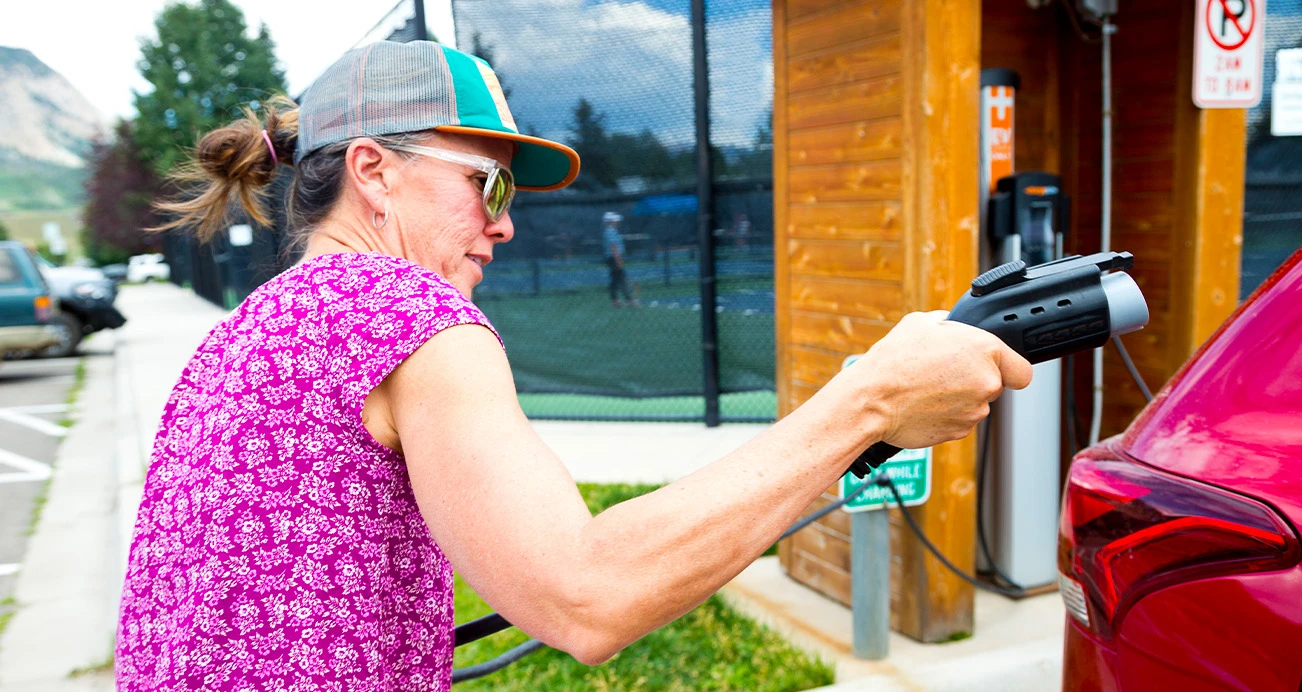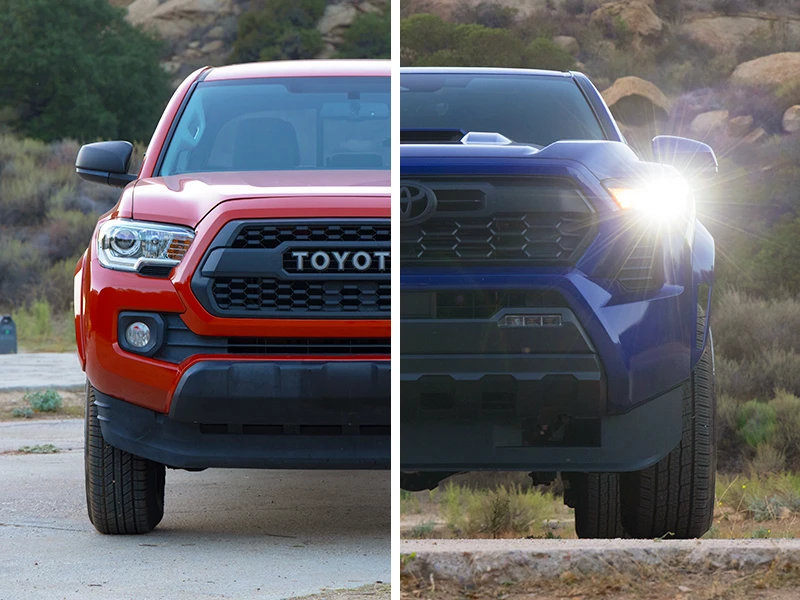
Is charging an electric car cheaper than pumping gas?
With thousands of vehicles in our inventory, we’re here to help make car research easier for you. We’ve partnered with car-review experts from Edmunds to weigh in on what matters most when you’re looking to buy a truck or car.
***
"Will driving an electric car save me money on fuel?"
With gas cars, the math is easy. More mpg means less money spent at the pump. But to figure out how much an EV will cost to charge, you'll have to answer a few questions first.
Is your EV a big, heavy truck or a nimble, efficient hatchback? What does electricity cost in your state? Does the time of day you charge impact how much you pay for electricity? But the most important question is where will you be charging?
Sound confusing? Don't worry—we're here to make it easier for you.
Kilowatts vs. gallons
First, a little background on how EV charging and efficiency are measured. You're probably used to seeing mpg stickers for gas-powered cars. The more miles a car gets per gallon of gas, the more efficient it is and the less you wind up paying at the pump.
Instead of gallons of gas, electric cars are "filled up" with kilowatt-hours of electricity, or kWh. That's the metric you'll usually see electricity measured in, both when you pay your electric bill and when you’re measuring how much energy your EV’s battery can hold. The more efficient an electric car is, the fewer kWh it uses.
Figuring out how much you'll pay to charge an electric car isn't as simple as just multiplying the size of the battery by how much electricity costs. Like a gas car, how much you drive, your driving style and how efficient your vehicle is all make a difference. But with an EV, where and when you charge can make a much bigger difference.
How much does it cost to charge an electric car at home?

Whether you charge at home or on a public charger impacts how much you'll pay. Spoiler alert: Charging at home will save you a bundle of money. The national average price for at-home consumer electricity at the time we're writing is $0.1546 per kilowatt-hour (kWh).
Let's look at some examples, using a 100-mile drive as a benchmark. We're going to look at an efficient gasoline-powered car (Toyota Corolla), an inefficient electric vehicle (Ford F-150 Lightning), and an efficient electric vehicle (Nissan Leaf). At the time we're writing, the national average of gas is $3.923 per gallon.
Cost per 100 miles (Home charging vs. Gas)

Depending on where you live, gas prices and electricity prices can vary a lot from the national average, so you'll need to do a bit of math to get the right numbers for your area. But places with cheaper gas tend to also have cheaper electricity, so charging at home—especially with an efficient electric car—usually costs a lot less than filling up at the pump.
What if you don't have a home charger, or are planning a road trip that means you'll have to use public charging stations?
How much does it cost to charge an electric car at a public charger?

Public charging costs vary by location and charger type. Slower charging stations (called Level 2 chargers) tend to cost just a little more than changing at home, but getting a full charge can take hours and hours. Public Level 2 charging stations are great if you can plug in while you're at the office all day, but otherwise they're really only useful for adding a few extra miles to get you home. If your battery is getting close to empty, you might want to choose the nearest charger, no matter its speed.
If you're on a road trip or can't wait all day, you'll need a fast charger. Fast chargers cost more to use, but they can also add many miles to your range in just minutes. The average rate charged by EVgo for public fast charging on its Pay As You Go plan is $0.33 per kWh, so how does that stack up against a gas fill-up?
Cost per 100 Miles (Public fast charging vs. Gas)

Just like with home charging, prices can vary depending on where you live. In some states, prices for fast charging can also increase during peak use hours (typically in the late afternoon and early evening, when people are getting home from work). You could potentially wind up paying a little more to charge a Nissan Leaf than to fill up a Toyota Corolla if you do your public charging during peak hours.
Most companies that provide fast charging offer subscription plans that make charging cheaper if you pay a small monthly fee. If you frequently use public chargers, this can ultimately save you money.
Find out how other drivers have adapted to EV charging in this related article: I Switched to an Electric Car. Here’s What I Learned About Charging It.
Conclusion
Charging at home can cost a lot less than buying gas, and a lot less than public charging. But even public charging can offer savings over filling up with gas if you're driving an efficient EV—just watch out for "time of use" pricing, depending on where you live.




